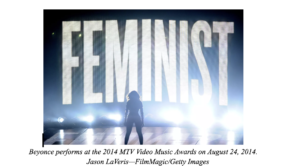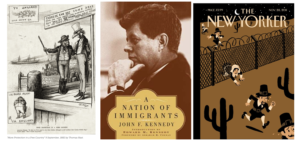Writing Studies
Why You Can’t Write (First Year Seminar)
As anyone who has ever sat at a keyboard knows, writing can be frustrating. And intimidating. Even the most successful writers often doubt themselves and feel frightened of the blank page. And, as John Waters points out in his 2018 book Why They Can’t Write, schools and other institutions often stress approaches to writing that seem designed to limit rather than enable a writer’s skill and creativity. In this First Year Seminar, you will explore and develop your writing strengths as we join scholars and thinkers like Warner in interrogating what writing means and how it functions both in and outside of higher education. Reading widely in composition studies, rhetorical studies, literacy studies, and critical university studies, students will explore ideas about writing process and practice, multilingualism, code-meshing, and pedagogy that will require us to consider the purpose of education and communication quite broadly. Students can expect to write weekly reading responses, produce a personal literacy narrative, develop writing assignments, and practice conducting research during the semester.
Writing Theory and Praxis
Writing is central to education in the US, but how does someone learn to write? In this course, students will consider this question by reading theories of composition while considering the relationship between language, literacy, and power. Together we will explore the potential of writing education, carefully considering how we, as educators, can foster just and innovative writing education. As we read about writing instruction, literacy, and assessment, students will be expected to bring scholarship in dialogue with lived experience. To do so, they will engage in a number of praxis based assignments, including group work to develop assignments, assessment practices, and curricular recommendations. The course will culminate in a final project of each students’ design that tackles the practicalities of teaching writing.
Learning to Write
Ask any writer and they’ll tell you: writing is a process. In college, however, writing is often reduced to a rapid act of drafting before an imminent deadline. The question for most college writers, then, is this: If you want to learn to write, and if writing is a process, when do you get to practice your process? In this course, students will do just that: practice, practice, practice. We will read what scholars and practitioners say about writing to frame our own thinking about our relationships to writing and our practices as writers. Most importantly, students will write regularly, revise often, and review/workshop their peers’ work just as often as they process feedback from the instructor. This course is especially appropriate for students who want to develop their writing skills and bolster their agency as writers particularly in academic settings. Assignments will include weekly reflections, a variety of writing assignments including personal writing, response papers, and two formal argumentative essays, regular writing workshops (peer review), and final writing project based on each student’s individual disciplinary interests.
Art of the Personal Essay
We all have stories to tell. But it takes hard work to transform our intimate experiences into meaningful and captivating pieces of writing. This course dives into this labor by focusing on the craft of personal essay writing. This means reading and writing a lot. Students will keep a writer’s journal, respond to readings, discuss readings with one another, participate in writing workshops, and produce a multitude of short writing assignments culminating in a polished personal essay.
Ford Seminar
Every semester Wesleyan writing tutors have the opportunity to deepen their professional knowledge and practice. The Ford Seminar fosters this professional development through modules on histories of writing centers/writing courses in higher education, anti-racist writing practices, gender and sexuality, code-meshing, translingualism, multilingualism, dis/ability, access and equity, zone of proximal development, directive/indirective/facilitative tutoring, AI and writing center work, and more. Every spring, tutors opt into inquiry groups that range from topics such as “The Sentence,” “Revision,” “AI in the Writing Center,” and “Writing Center Research.”
Literary and Cultural Studies
All the Feels: Affect Theory and Cultural Studies
Butterflies in your chest. Perspiration on your upper lip. A racing heart. Every day we witness and manage sensorial experiences; quite often these negotiations illuminate the ways in which powerful norms and institutions shape our daily lives. This course explores the relationship between the seemingly individualized experience of feeling and the social world of power by introducing students to the vibrant field of affect studies. A recent “turn” in critical theory, affect theory is interested in embodiment, the senses, and sensorial experience, questioning the dominance of rationality and cognition by exploring the role emotions and feelings play in our social worlds. This course will focus predominantly on affect theory as it emerged from queer, feminist, and racialized minoritarian discourses in order to, ultimately, contemplate the ways theories of affect, feeling, sensation, embodiment, and emotion open up literary and cultural texts.
 Are You a Feminist? (First Year Seminar)
Are You a Feminist? (First Year Seminar)
On December 13, 2013 Beyoncé surprised the world by dropping her fifth studio album, and her first audio-visual album, entitled Beyoncé, without warning. Three years later, Beyoncé premiered Lemonade, her sixth studio album that, like Beyoncé, was accompanied with full visuals. These visual albums brought forth a politically minded and certainly more personally grounded Beyoncé with songs about the female orgasm, quickies in a limo, adultery, gun violence, and black Southern US identities. As the world came to learn every song by heart, they also began to debate the significance of Beyoncé’s claims to feminism and her attempts to highlight the black experience in the US. These debates were shaped by Beyoncé’s inclusion of the literary arts in her work: On “Flawless” one of the most popular tracks of Beyoncé, Nigerian-American author, Chimamanda Adichie’s TedTalk “We Should All be Feminists” is sampled; and throughout Lemonade’s visual interludes Beyoncé is heard reading the work of Kenyan-born, Somali poet residing in Britain, Warsan Shire.
Taking our cue from Beyoncé and the debates her music has produced, this introductory course investigates the meaning of feminism by considering how writers, artists, activists, academics, and public intellectuals discuss the topic. Students’ curiosity about feminism – as topic, politics, identity, and practice – will guide class meetings where we will discuss readings by prominent feminist writers, scholars, and critics. Students will leave the course with a clear sense of themselves as writers and thinkers, as well as an understanding of the ways in which gender and sexuality intersect with race, class, and other social identities and of the multiplicities of feminisms in our contemporary moment.
 A Nation of Immigrants? (First Year Seminar)
A Nation of Immigrants? (First Year Seminar)
America is a nation of immigrants. This ideological epithet has come to define the American experience as one of opportunity, advancement, and national incorporation. This course will approach this narrative from the perspective of im/migrants, refugees, exiles, displaced persons, and colonized minorities. To do so, we will read sociology, history, and political theory alongside literary texts, inquiring into discourses of migration, mobility, and (un)belonging through an interdisciplinary and intersectional lens.
Post-Cold War Narratives of Migration to the US
In this course, we will study post-cold war U.S. immigrant literature. Published in a period of shifting politics, particularly for racialized migrants, these texts illuminate new iterations of what it means to be and belong in a world where capital, labor, materials, products, and people were experiencing new forms of global im/mobility. We will read a variety of diasporic fiction from a range of localities to consider the ways imperialism, colonialism, militarism, religious proselytizing, and racial capitalism are in dialogue with the murky experiences of family, desire, loss, home, mobility, culture, trauma, and belonging. In doing so, we seek to understand how macro, micro, interpersonal, and intrapsychic experiences and institutions shape migratory routes and the stories that emerge across them. We will address literature through an interdisciplinary lens by reading fiction alongside sociology, history, economics, political theory, and more in order to consider what the world of the fictive can tell us about migration that other disciplines may not be able to articulate with such emphasis and attunement as literature.
**Please contact for syllabi**